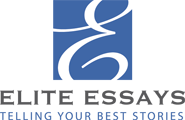2014-2015 MBA Application Strategy Overview
So the trends for this year continue the drastic streamlining of the MBA application process, which really accelerated last year with HBS' bold decision to essentially make essay writing optional. This year, many schools have followed in spirit, with Stanford now requiring only two essays (down from three last year), Wharton requiring only one (two last year), Kellogg only three (four last year, including the video essay), Ross only two (three last year), and Booth only one (down from three) with that one being completely open in terms of format, length, etc. On top of relaxed essay demands, many schools have chosen to use the exact same two LOR questions, one of which probes for your outstanding qualities relative to your peers, and the other your receptivity to critical feedback. At the same time, many schools have moved up their first-round deadlines into September, so the round-one window is more narrow. Schools that are bucking these trends include MIT Sloan, which added a twist to their application by requiring applicants to write a letter of recommendation for themselves from the imagined perspective of their most current supervisor (big caution if you will also be drafting an LOR for that person to sign!), and Columbia which has kept much of their application from last year the same with the exception of adopting the two-question LOR approach mentioned above.
Within the essays themselves, there also seems to be a move away from the long-standard queries about your professional goals, with schools either not asking at all or only asking for a synopsis. Two exceptions are UCLA and Wharton, which are both requiring fairly typical and lengthy goals essays. For that reason, I'm recommending them as good starter schools to many of my clients. I also recommend that most people still develop a full goals draft first, because whether or not a particular school requires it, knowing your goals and how your past experiences have led you to them can help you structure the rest of your applications. And you can bet that many interviewers will still be interested in your goals/reasons for pursuing an MBA, so make sure your logic is tight. As I long have, I'm recommending to my clients that they tackle HBS and Stanford GSB last among their chosen schools or at least after they've already completed a few schools, since they do require the most comprehensive and inclusive approach. When it comes to HBS and Stanford, building towards them can often lead to the strongest applications simply because you'll have more chances to explore more past experiences and link them to your ambitions.
With less emphasis on traditional essays, interviews (and video essay, in the case of Kellogg) will become more important and more telling in many ways because of their spontaneity. (I know I'll be spending a lot more time with my clients this year on interview and video essay prep.) At the same time, for many people interviews might be more challenging since there is less "prep work" to do in the form of essays, which often form the base of interview answers. So while applying to schools should be easier for most people, getting accepted might actually be harder. As it always has in the MBA application process, your level of self-awareness will determine a large part of your success or failure.
